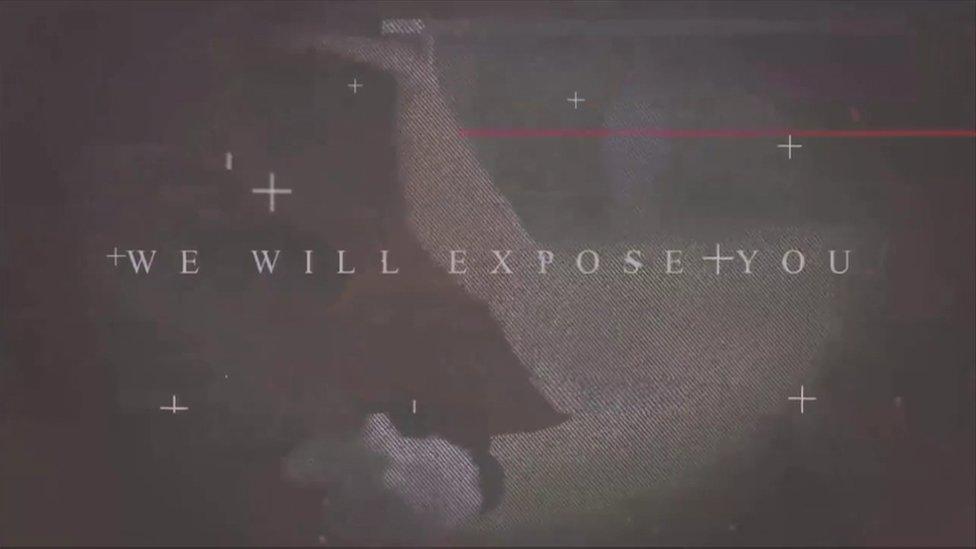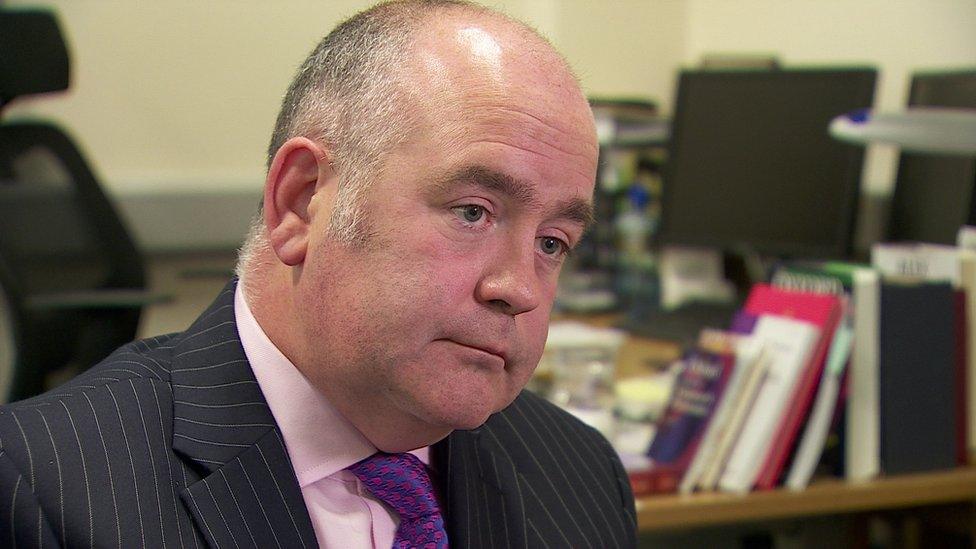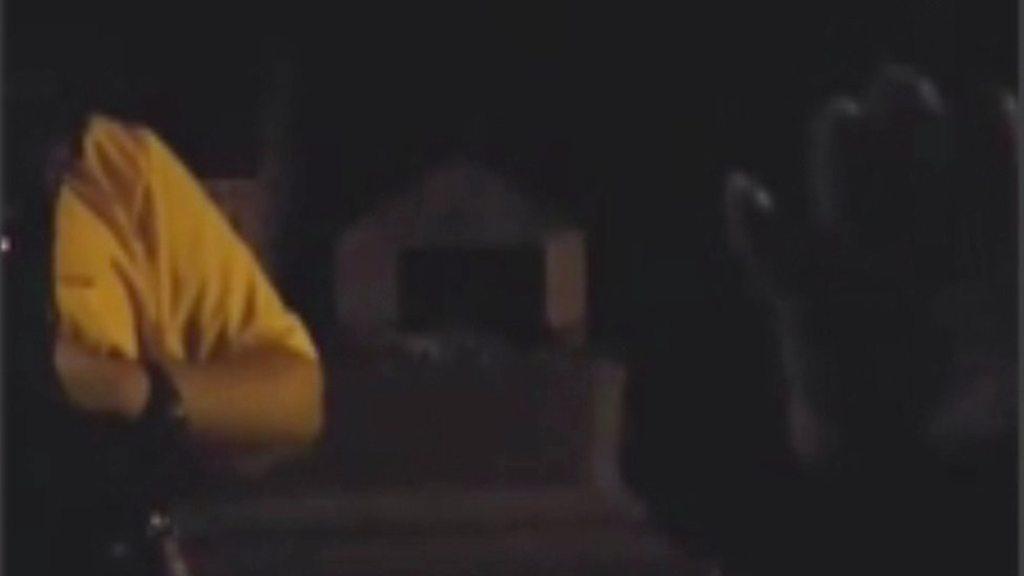Paedophile vigilantes 'endangering lives' warns PSNI
- Published
PSNI challenge group over 'paedophile citizen's arrest'
Vigilantes who confront people they claim are paedophiles - exposing them online - could jeopardise court cases and endanger lives, police have warned.
It follows two recent confrontations in Northern Ireland by a group calling itself Silent Justice, both of which were streamed live online.
One of the men who was confronted and filmed took his own life last week.
Police are investigating seven people based on the group's information, but warn innocent people could be targeted.
"We could see a circumstance where an individual who has done nothing wrong is wrongly identified and is placed across social media as being someone who is a child sexual abuse offender," said the PSNI's head of public protection, Det Ch Supt George Clarke.
"Vigilante identification could lead to vigilante action and could lead to violence being meted out to a person without any thought or legitimacy behind that."
'Citizen's arrest'
Silent Justice has been operating in England for a number of months and recently also began targeting people in Northern Ireland.
The group employs decoys who pose as young children online.
Members of the group allege they have evidence of paedophiles who try to incite the decoys into sexual activity and sharing indecent images.
Members then confront the individuals, state that they are making a citizen's arrest, and contact police with what they say is evidence of criminal activity.

A group calling itself Silent Justice has posted online videos of its members confronting individuals
Last week, the Irish News reported that a father-of-two from County Antrim took his own life shortly after a confrontation with Silent Justice.
Footage of the confrontation, which had been live-streamed online, was later removed "out of respect for the man's family", said the group.
However, there was another confrontation in County Down overnight.
This was also live-streamed for more than an hour, although the face of alleged offender was not shown.
The group phoned the police in advance and claimed to have evidence of criminal activity.
When officers arrived, they asked for the broadcasting of the encounter to stop.
A representative of the group repeatedly refused to stop the recording.
The County Down man confronted by the group was later arrested.
'Not accountable'
Since the group started operating in Northern Ireland, it has given the PSNI details of a number of people it alleges are paedophiles.
As a result, seven individuals are being investigated, including the man who took his own life having been confronted last week.
The group claims its activities have resulted in a large number of prosecutions in England, but the PSNI disputes that and says there is little evidence of success.

Det Ch Supt George Clarke said the PSNI was the only legitimate authority that can investigate abuse
The PSNI has said it is duty-bound to investigate the allegations, but added that the methods used by vigilante groups could jeopardise criminal proceedings - and potentially put lives at risk.
Mr Clarke said: "Whatever their motivation may be, the reality is that there is one agency that can investigate this sort of criminality and that's the police.
"They are not the police. They are not accountable, they don't have the legitimacy, or the transparency, or the structures that underpin the police service."
He added that the PSNI engaged in a "large amount of overt and covert online and off line virtual world or real world activity to safeguard children and other vulnerable people".
"If individuals out there feel the police are not acting appropriately, then give that information to police... we do act on it vigorously."
'Sensationalise'
The officer also issued a warning about the dangers of naming and shaming suspects online.
"I don't understand the motivation for the live-streaming of a confrontation," said Mr Clarke.
"I'm conscious that the live-streaming of the confrontation might have a further impact on down the criminal justice line in terms of trial issues.
"The desire to put this out in the public domain may suggests to me there may be almost a desire to expose and almost sensationalise some of this activity.
"If they are motivated to give us evidence and help us develop prosecution cases, they don't need to do the exposé piece."
The BBC tried to contact the group for a response to the police comments.
But there was no reply.
- Published14 August 2017
